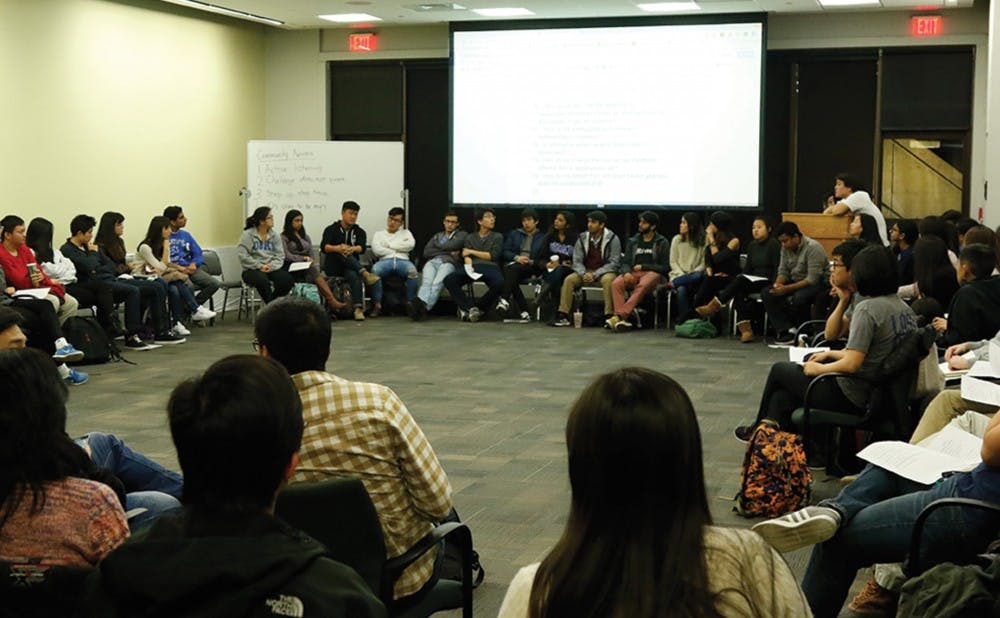Following recent racial tensions on campuses across the country, a coalition of student organizations initiated an open conversation Monday night to discuss the challenges and hardships faced by the Asian and Asian-American student body.
The event—titled "What does it mean to be Asian and Asian-American at Duke?"—included both large-group and small-group discussions and covered topics such as the inclusiveness of Asian and Asian-American identities and the lack of a safe space for Asians and Asian-Americans at Duke. Sophomore Christine Lee, political and service chair of the Asian Students Association, mentioned in her opening address that one of the primary goals for the meeting was to establish a conversational space for Asian students.
"We realized that we as a community did not have an open space for conversation," Lee said. "[The organizers] thought that creating one was the most important first step."
Junior Shalini Subbarao, president of external affairs for Duke Diya, echoed the goal of inclusivity, explaining that there are many overarching experiences that tie together the Asian and Asian-American community as a whole.
To demonstrate examples of shared experiences between the different Asian communities, students were asked to participate in an activity in which students checked options on a form that listed negative experiences associated with Asian identity, such as feeling embarrassed wearing ethnic clothing, changing names to be more employable and feeling like an outsider due to race.
Small-group and large-group discussions throughout the event addressed aspects of the definition of "Asian" both at and away from Duke, such as the difference between Asian and Asian-American, as well as differences in parents' versus students' identities. The Asian Muslim population at Duke was briefly mentioned, and some students in attendance asked why Muslims are often not included within discussions of the Asian identity. Other questions dealt with the lack of Asian and Asian-American experiences in the political, social and entertainment spheres.
One group discussed the idea that Asian parents often perpetuate divides both within the Asian community and between Asian and other communities. Some students discussed how they had been conditioned to stay quiet by their parents in the face of persecution by white communities. In addition, some said their parents were not afraid to spread racist ideas about different groups of Asians.
Students also talked about their feelings toward the word “Asian," with some saying the term is too broad and preferring words that describe their specific ethnicity or nationality.
Groups also discussed the presence of Asians in various spheres of society, including entertainment and media—in particular, students praised actor and comedian Aziz Ansari’s show "Master of None." Many agreed that Ansari touched upon several topics of concern for all Asian communities, especially relationships with immigrant parents and the problem of accents in the media.
Li-Chen Chin—director of intercultural programs at the CMA—raised the question of how the many Asian student organizations at Duke could best support students. Many suggested making future discussions based around general topics rather than specific identities, as the focus on identities may have turned people away from attending.
Subbarao said that even though there was room for improvement, she had high hopes for future discussions.
"Based on the turnout, we know that a lot of people want to talk about these issues," Subbarao said. "Hopefully in the future we can organize continued conversations and go more into depth with some of the topics."
Neelesh Moorthy contributed reporting.
Get The Chronicle straight to your inbox
Signup for our weekly newsletter. Cancel at any time.

